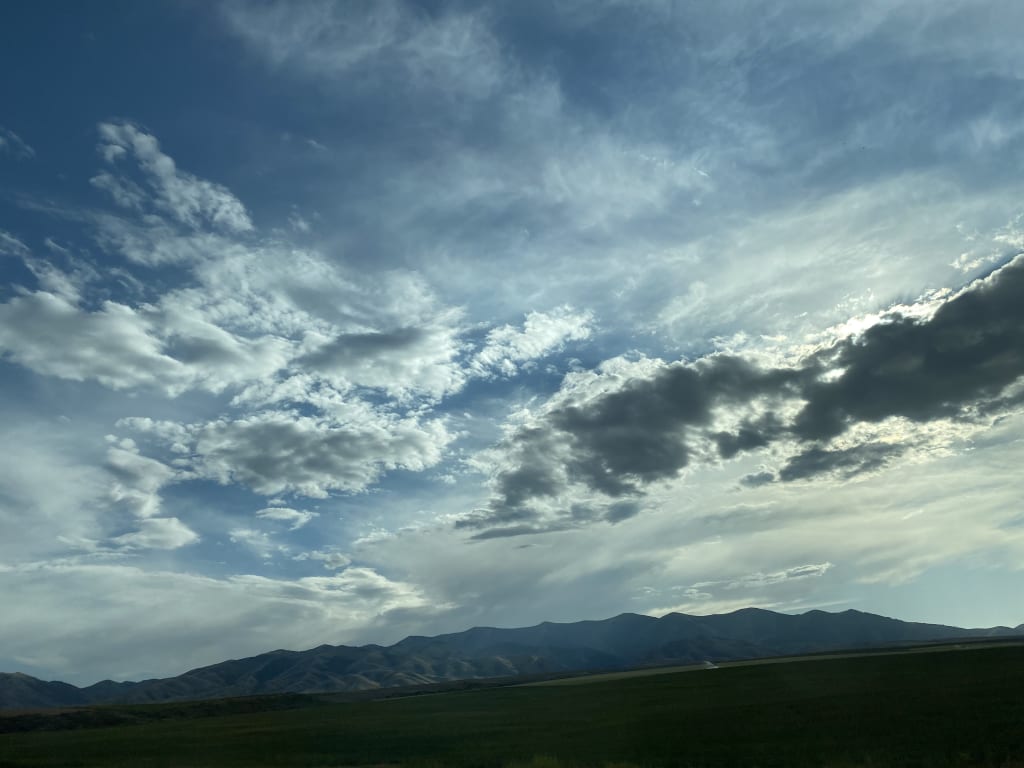The Why to Writing
The Who is Revealed Through the Why

When I think of great writers I think of the way they capture words to explore worlds that I previously thought only revolved in my head. They are able to use these tiny observations to show the reader their own vulnerabilities. Most writers I’ve met or known write because they have to. They have to encapsulate the imagery, the violence, and fragility of our everyday life, and that’s what I love. I love being able to read a verse of poetry and know that it stems from somewhere vital, like a vein I can see. It is very vulnerable, very revealing when reading a prose about longing, or pain, or joy. There are these moments of reverie that don’t belong to the reader, but can alter the reader's perspective and that is the beauty of writing. It is meeting someone you’ll never know in real life. It is seeing someone through the lens of ink and artwork. It lends a hand without having to be asked, and I think my love for reading has always stemmed from feeling that I could understand people, I could listen to a story and understand that struggle and triumph sometimes look the same. It is a beautiful thing that I hold dear, a talent I have honed over the entire course of my life. I’m only 24 but I feel like I see and hear and know so much about people just from reading stories about other people, and that’s the beauty. The realization that we are all connected on some field and that being a person is not always the short story we hope for. There are no happy endings, in my opinion, just happy lessons, and the lesson of writing is my favorite of all. It encapsulates the need of human connection without having to state the desperate feelings of loneliness we all experience. It is truly a gift that I cannot live without and I wonder sometimes what the point would be if I couldn’t exude my experiences onto a page and speak.
It all started when I was a young child, learning from my older brother that being smart meant reading a lot and often. He would generally parade around me with all of the books he acquired from Barnes and Noble and I would have to sit there and wonder what all those stories held, what were the answers I could find on a paperback? He would often tell me there was no way I could compete with him and his reading level, and at first I agreed because he was almost six years older than me. This set me on a path of competitive reading that I’m not sure I’ve ever gotten off of. I remember thinking that I would have to read more books than my brother so that one day we could compare the word count of our respective libraries and see who comes out victorious and therefore more intelligent. When I was in first grade I struggled immensely with reading out loud because I was very shy. I always had anxiety around speaking and I would refuse to read even though I understood the material because I was so fearful of being rejected for my reading voice and pronunciation. I was forced to use a phonics game that helped me with this fear and eventually I would be able to memorize entire passages from the Bible and recite them to the class. This was very miserable for me as I viewed reading as an escape from my own experiences and I wanted to have them as a secret. I avoided book reports like the plague because I truly felt they were a waste of time. I did not want to waste my precious free time writing something completely boring like a synopsis when I could be reading more stories and extrapolating data from them. I wasn’t very interested in science at the time and felt like books held more answers to the human condition than any experiment could. I remember when I was told I had a reading level of a high schooler in third grade. I thought that was the biggest achievement I could acquire. I thought that would prove that I was smart. It wasn’t until I was old enough to realize that society doesn’t value stories and storytellers the way I do. My first job interview wasn’t about how well I could understand prose, it was about if I could stand eight hours without complaining. It was painful for me to realize that all the work I had done amassed to little in the real world.
If I had to give advice on how to write or what to write or why to write, I would say do it because you want to. Do it because your story is an amalgamation of your life. You will never be as competent, reverent or as agile as you are in this moment and it’s imperative that you write so as not to forget yourself. Who you are, where you came from, your nickname that you hated, these are all vital signs that you are alive. If you write it will show that you want your voice to not just be heard but seen. You want to be remembered the way Shakespeare is quoted by renowned actors still. Even if you aren’t quoted you can know that someone out there might be needing your perspective, your feedback, your indescribable mystique that is you. No one can predict the impact of their honest stories and lessons but I guarantee that you won’t regret expunging the past and putting it on paper. Even if you show no one and you lock the key and bury the evidence, you will have the secret worlds you have been forced to live. You will feel lighter even as your eyelids grow heavy and even as your limbs grow weary. If you want to be remembered, forget about leaving an impression with money, status, or power. Leave little notes, little reminders of how you made someone feel at home or alive or listened to. In the end all great writers are dust but we still remember their names because they made us feel something. You don’t have to be remarkable to leave a mark, and writing is just a way to memorialize you as you are in that very moment. It doesn’t even have to be a sentence, it could be a word. Capitalize on the fact that no one is you and no one likes that word more than you and your identity can be defined in one word. It will help you become a writer because you will want to use more words to identify yourself and identify yourself compared to others, to the world. Writing is like putting a candle to the wind, you are melting inside and no one can see the power that stems from that other than you.






Comments
There are no comments for this story
Be the first to respond and start the conversation.